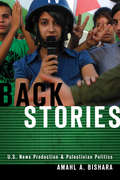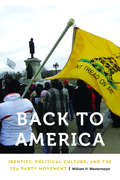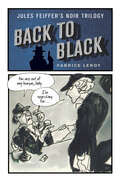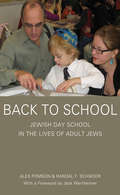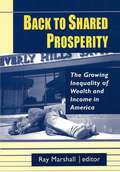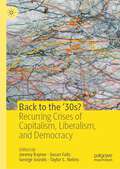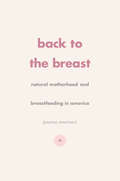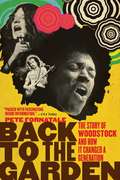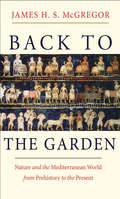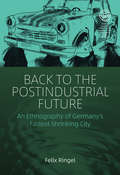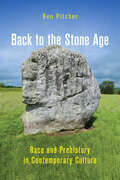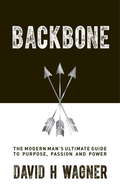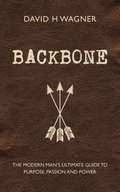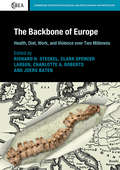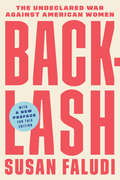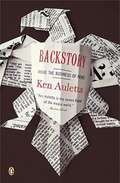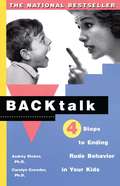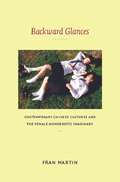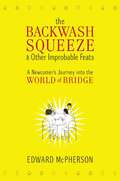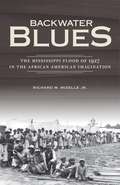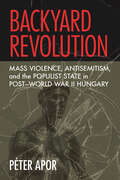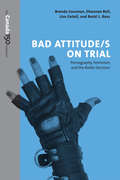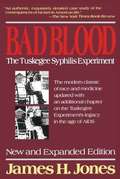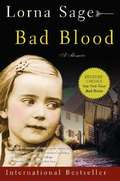- Table View
- List View
Back Stories: U.S. News Production and Palestinian Politics
by Amahl A. BisharaFew topics in the news are more hotly contested than the Israeli-Palestinian conflict—and news coverage itself is always a subject of debate. But rarely do these debates incorporate an on-the-ground perspective of what and who newsmaking entails. Studying how journalists work in Jerusalem, Bethlehem, Ramallah, and Nablus, and on the tense roads that connect these cities, Amahl Bishara demonstrates how the production of U.S. news about Palestinians depends on multifaceted collaborations, typically invisible to Western readers. She focuses on the work that Palestinian journalists do behind the scenes and below the bylines—as fixers, photojournalists, camerapeople, reporters, and producers—to provide the news that Americans read, see, and hear every day. Ultimately, this book demonstrates how Palestinians play integral roles in producing U.S. news and how U.S. journalism in turn shapes Palestinian politics. U.S. objectivity is in Palestinian journalists' hands, and Palestinian self-determination cannot be fully understood without attention to the journalist standing off to the side, quietly taking notes. Back Stories examines news stories big and small—Yassir Arafat's funeral, female suicide bombers, protests against the separation barrier, an all-but-unnoticed killing of a mentally disabled man—to investigate urgent questions about objectivity, violence, the state, and the production of knowledge in today's news. This book reaches beyond the headlines into the lives of Palestinians during the second intifada to give readers a new vantage point on both Palestinians and journalism. Show more
Back to America: Identity, Political Culture, and the Tea Party Movement (Anthropology of Contemporary North America)
by William H. WestermeyerBack to America is an ethnography of local activist groups within the Tea Party, one of the most important recent political movements to emerge in the United States and one that continues to influence American politics. Though often viewed as the brainchild of conservative billionaires and Fox News, the success of the Tea Party movement was as much, if not more, the result of everyday activists at the grassroots level. William H. Westermeyer traces how local Tea Party groups (LTPGs) create submerged spaces where participants fashion action-oriented collective and personal political identities forged in the context of cultural or figured worlds. These figured worlds allow people to establish meaningful links between their own lives and concerns, on the one hand, and the movement&’s goals and narratives, on the other. Collectively, the production and circulation of the figured worlds within LTPGs provide the basis for subjectivities that often nurture political activism. Westermeyer reveals that LTPGs are vibrant and independent local organizations that, while constantly drawing on nationally disseminated cultural images and discourses, are far from simple agents of the larger organizations and the media. Back to America offers a welcome anthropological approach to this important social movement and to our understanding of grassroots political activism writ large.
Back to Black: Jules Feiffer’s Noir Trilogy (Critical Graphics)
by Fabrice LeroyThe legendary American cartoonist and author Jules Feiffer has enjoyed a long and varied career, working on everything from illustrating The Phantom Tollbooth to writing the screenplay for the film Popeye. But some of his most innovative work came very late in his career, with a trio of graphic novels he composed in his eighties: Kill My Mother (2014), Cousin Joseph (2016), and The Ghost Script (2018). Back to Black provides the first full-length critical analysis of this trilogy, exploring how it pays homage to the iconography and themes of film noir through constant graphic experimentation and a striking reinvention of Feiffer’s distinctive style. Fabrice Leroy shows how Feiffer deftly alternates between dramatic and satirical tones as he plays with the conventions of noir to provide a caustic yet moving commentary on mid-twentieth-century American life. Through close readings of each novel in the trilogy, he examines Feiffer’s singular depiction of the central political issues in the United States from the Great Depression to the 1950s, which still resonate today: unionization struggles, cinematic propaganda, McCarthyism, the American Dream, immigration, antisemitism, civil rights, and gender discrimination. Placing the noir trilogy into the context of Feiffer’s long career, Back to Black demonstrates how he offers a loving pastiche of the genre without losing his unique voice or critical edge.
Back to School: Jewish Day School in the Lives of Adult Jews
by Jack Wertheimer Alex Pomson Randal F. SchnoorA groundbreaking study on the impact of Jewish day schools in the lives of parents and children.
Back to Shared Prosperity: The Growing Inequality of Wealth and Income in America
by Ray MarshallTo what extent are major social and political problems caused by basic income and unemployment trends? Is it possible to restore the kind of broadly shared prosperity the U.S. once experienced before the early 1970s? Some of the top economists of our time address these critical questions.
Back to the ‘30s?: Recurring Crises of Capitalism, Liberalism, and Democracy
by Susan Falls Jeremy Rayner George Souvlis Taylor C. NelmsThe essays in this volume address the question: what does it mean to understand the contemporary moment in light of the 1930s? In the aftermath of the worst economic crisis since the Great Depression, and facing a dramatic rise of right wing, authoritarian politics across the globe, the events of the 1930s have acquired a renewed relevance. Contributions from a diverse, interdisciplinary group of scholars address the relationship between these historical moments in various geographical contexts, from Asia-Pacific to Europe to the Americas, while probing an array of thematic questions—the meaning of populism and fascism, the contradictions of constitutional liberalism and “militant democracy,” long cycles and crisis tendencies in capitalism, the gendering and racialization of right wing movements, and the cultural and class politics of emancipatory struggles. Uncovering continuity as well as change and repetition in the midst of transition, Back to the 30s? enriches our ability to use the past to evaluate the challenges, dangers, and promises of the present.
Back to the Breast
by Jessica MartucciAfter decades of decline during the twentieth century, breastfeeding rates began to rise again in the 1970s, a rebound that has continued to the present. While it would be easy to see this reemergence as simply part of the naturalism movement of the '70s, Jessica Martucci reveals here that the true story is more complicated. Despite the widespread acceptance and even advocacy of formula feeding by many in the medical establishment throughout the 1940s, '50s, and '60s, a small but vocal minority of mothers, drawing upon emerging scientific and cultural ideas about maternal instinct, infant development, and connections between the body and mind, pushed back against both hospital policies and cultural norms by breastfeeding their children. As Martucci shows, their choices helped ideologically root a "back to the breast" movement within segments of the middle-class, college-educated population as early as the 1950s. That movement--in which the personal and political were inextricably linked--effectively challenged midcentury norms of sexuality, gender, and consumption, and articulated early environmental concerns about chemical and nuclear contamination of foods, bodies, and breast milk. In its groundbreaking chronicle of the breastfeeding movement, Back to the Breast provides a welcome and vital account of what it has meant, and what it means today, to breastfeed in modern America.
Back to the Garden: The Story of Woodstock
by Pete FornataleTHE BIGGEST EVENT IN ROCK 'N' ROLL HISTORY IS BROUGHT VIVIDLY TO LIFE THROUGH ORIGINAL INTERVIEWS WITH ROGER DALTREY, JOAN BAEZ, DAVID CROSBY, RICHIE HAVENS, JOE COCKER, AND DOZENS OF HEADLINERS, ORGANIZERS, AND FANS. For America's counterculture youth in 1969, Woodstock became a symbol of more than just sex, drugs, and rock 'n' roll--it was about peace, love, and a new way of living. It was a seminal event that epitomized the ways that the culture, the country, and the core values of an entire generation were shifting. On one glorious weekend, this generation found its voice through music. Back to the Garden celebrates the spirit of Woodstock in the words of some of the era's biggest musical stars, as well as those who participated in the festival. From Richie Havens's legendary opening act to the Who's violent performance, from the Grateful Dead's jam to Jefferson Airplane's wake-up call, culminating in Jimi Hendrix's career-defining moment, renowned disc jockey Pete Fornatale brings new stories to light and sets the record straight on some common misperceptions. Illustrated with black-and-white photographs, Back to the Garden is the authoritative and highly entertaining history of three days of peace and music
Back to the Garden
by James H. McgregorThe garden was the cultural foundation of the early Mediterranean peoples; they acknowledged their reliance on and kinship to the land, and they understood nature through the lens of their diversely cultivated landscape. Their image of the garden underwrote the biblical book of Genesis and the region’s three major religions. In this important melding of cultural and ecological histories, James H. S. McGregor suggests that the environmental crisis the world faces today is a result of Western society’s abandonment of the #147;First Nature” principle--of the harmonious interrelationship of human communities and the natural world. The author demonstrates how this relationship, which persisted for millennia, effectively came to an end in the late eighteenth century, when #147;nature” came to be equated with untamed landscape devoid of human intervention. McGregor’s essential work offers a new understanding of environmental accountability while proposing that recovering the original vision of ourselves, not as antagonists of nature but as cultivators of a biological world to which we innately belong, is possible through proven techniques of the past.
Back to the Postindustrial Future: An Ethnography of Germany's Fastest-Shrinking City (EASA Series #33)
by Felix RingelHow does an urban community come to terms with the loss of its future? The former socialist model city of Hoyerswerda is an extreme case of a declining postindustrial city. Built to serve the GDR coal industry, it lost over half its population to outmigration after German reunification and the coal industry crisis, leading to the large-scale deconstruction of its cityscape. This book tells the story of its inhabitants, now forced to reconsider their futures. Building on recent theoretical work, it advances a new anthropological approach to time, allowing us to investigate the postindustrial era and the futures it has supposedly lost.
Back to the Roots: Memory, Inequality, and Urban Agriculture (Nature, Society, and Culture)
by Sara ShostakAcross the Commonwealth of Massachusetts, urban farmers and gardeners are reclaiming cultural traditions linked to food, farming, and health; challenging systemic racism and injustice in the food system; demanding greater community control of resources in marginalized neighborhoods; and moving towards their visions of more equitable urban futures. As part of this urgent work, urban farmers and gardeners encounter and reckon with both the cultural meanings and material legacies of the past. Drawing on their narratives, Back to the Roots demonstrates that urban agriculture is a critical domain for explorations of, and challenges to, the long standing inequalities that shape both the materiality of cities and the bodies of their inhabitants.
Back to the Stone Age: Race and Prehistory in Contemporary Culture
by Ben PitcherPrehistoric human life is a common reference point in contemporary culture, inspiring attempts to become happier, healthier, or better people. Exploited by capitalism, overwhelmed by technology, and living in the shadow of environmental catastrophe, we call on the prehistoric to escape the present, and to model alternative ways of living our lives.In Back to the Stone Age Ben Pitcher explores how ideas about race are tightly woven into the powerful origin stories we use to explain who we are, where we came from, and what we are like. Using a broad range of examples from popular culture – from everyday practices like lighting fires and walking in the woods to engagements with genetic technologies and Neanderthal DNA, from megaliths and museum mannequins to television shows and best-selling nonfiction – Pitcher demonstrates how prehistory is alive in the twenty-first century, and argues that popular flights back in time provide revealing insights into present-day anxieties, obsessions, and concerns.Back to the Stone Age shows that the human past is not set in stone. By opening up the prehistoric to critical contestation, Pitcher places racial justice at the centre of questions about the existence and persistence of Homo sapiens in the contemporary world.
Backbone: The Modern Man's Ultimate Guide to Purpose, Passion and Power
by David H. Wagner'David Wagner is a transformational teacher and dedicated leader, on a committed path of service, guiding others to awaken to their inner wisdom and authentic power.' Gabrielle Bernstein, New York Times bestselling author of Miracles Now. So many self-help books on the market have a feminine edge and do not speak directly to a man's masculinity. The message that men have been given so far is that they have to get in touch with their feminine side if they want to embrace change. This book blows this theory out of the water and is a total game changer. It enables men to transform entirely, working with their masculinity instead of against it. Straight talking, down-to-earth and humorous Wagner addresses the challenges that modern men typically face, asking the reader to join him in a series of profound self-examination exercises and questions covering life purpose, male identity, spirituality, self-limitation, sexuality, relationships, fatherhood and more. Every chapter is highly practical and also includes observations and examples from David's own life journey as well as insights gained from the many clients and groups he has worked with over the years. Men all over the world will be saying: 'Finally a book that actually speaks to me in my language'.
Backbone
by David H. Wagner'David Wagner is a transformational teacher and dedicated leader on a committed path of service, guiding others to awaken to their inner wisdom and authentic power.' Gabrielle Bernstein, New York Times bestselling author of Miracles Now You deserve the best of life. And your life deserves the best of you. What does it mean to be a powerful happy man in today s world? What does it take for a man to know himself, know his mission in life, and live a life of strength, honor, and wisdom? Learning to be a good man used to be part of our culture; sons learned from fathers, nephews learned from uncles, apprentices learned from masters. But today this rarely happens. Modern men have to figure it out by themselves. Backbone is a practical, step-by-step guide to help men know themselves deeply, root out weaknesses, enhance strengths, and upgrade their experience of life. Backbone combines no-nonsense wisdom with brutally honest exercises to help men to:- find their purpose and be on track with their vision- access and hone their spiritual and emotional intelligence- get free from unhelpful beliefs, patterns, and habits - live an amazing, powerful, passion-filled life.
The Backbone of Europe: Health, Diet, Work and Violence over Two Millennia (Cambridge Studies in Biological and Evolutionary Anthropology #80)
by Clark Spencer Larsen Joerg Baten Richard H. Steckel Charlotte A. RobertsUsing human skeletal remains, this volume traces health, workload and violence in the European population over the past 2,000 years. Health was surprisingly good for people who lived during the early Medieval Period. The Plague of Justinian of the sixth century was ultimately beneficial for health because the smaller population had relatively more resources that contributed to better living conditions. Increasing population density and inequality in the following centuries imposed an unhealthy diet - poor in protein - on the European population. With the onset of the Little Ice Age in the late Middle Ages, a further health decline ensued, which was not reversed until the nineteenth century. While some aspects of health declined, other attributes improved. During the early modern period, interpersonal violence (outside of warfare) declined possibly because stronger states and institutions were able to enforce compromise and cooperation. European health over the past two millennia was hence multifaceted in nature.
Backlash: The Undeclared War Against American Women
by Susan FaludiFrom the author of In the Darkroom, a feminist classic and skillful examination of the attack on women’s rights. Today’s political climate leaves no doubt that American women are still being assaulted by the same antifeminist backlash messages that Susan Faludi brilliantly exposed in her 1991 bestseller. When it was first published, Backlash made headlines for puncturing popular media myths like the “infertility epidemic” and the “man shortage.” The statistic-defying, willfully fictitious coverage, Faludi pointed out, contributed to an anti-woman backlash. <P><P> The fifteenth anniversary edition, with an updated preface by the author, brings backlash consciousness into the 21st century. Faludi’s words seem especially prophetic in post-Trump America. That glass ceiling remains unshattered, women are still punished for wanting to succeed, and reproductive rights are still hanging by a thread. But Backlash is an alarm bell for women of every generation—waking us up to the dangers that we all face.
Backstory
by Ken AulettaIt is said that journalism is a vital public service as well as a business, but more and more it is also said that big media consolidation; noisy, instant opinions on cable and the Internet; and political “bias” are making a mockery of such high-minded ideals. In Backstory, Ken Auletta explores why one of America’s most important industries is also among its most troubled. He travels from the proud New York Times, the last outpost of old-school family ownership, whose own personnel problems make headline news, into the depths of New York City’s brutal tabloid wars and out across the country to journalism’s new wave, chains like the Chicago Tribune’s, where “synergy” is ever more a mantra. He probes the moral ambiguity of “media personalities”—journalists who become celebrities themselves, padding their incomes by schmoozing with Imus and rounding the lucrative corporate lecture circuit. He reckons with the legacy of journalism’s past and the different prospects for its future, from fallen stars of new media such as Inside. com to the rising star of cable news, Roger Ailes’s Fox News. The product of more than ten years covering the news media for The New Yorker, Backstory is Journalism 101 by the course’s master teacher. .
Backtalk: 4 Steps to Ending Rude Behavior in Your Kids
by Carolyn Crowder Audrey Ricker"So what? All the other kids get to do it!"Few behavioral problems challenge and frustrate parents, caregivers, and teachers as does verbal rudeness in children of any age. Reinforced by the wise-cracking kids on TV and in the movies, backtalk has become all too common among today's youngsters. But there is nothing cute about this behavior. Remarks like "Yeah, right," "Big deal," and "Make me" -- form children as young as three -- get in the way of real communication between parents and kids, and can also be detrimental to a child's social and intellectual development.Now two experts in the field share their simple and specific four-step program for ending backtalk and restoring balance in relationships between parents and children, from preschoolers to teens. You'll learn how to recognize backtalk, how to choose and enact a response that will make sense to you and the backtalker, and when to disengage from the struggle and move forward. Full of advice and encouragement as well as suggestions on how to keep track of what works and what doesn't, Backtalk can be put to use immediately, before you hear another "Whatever."
Backward Glances: Contemporary Chinese Cultures and the Female Homoerotic Imaginary
by Fran MartinBackward Glances reveals that the passionate love one woman feels for another occupies a position of unsuspected centrality in contemporary Chinese mass cultures. By examining representations of erotic and romantic love between women in popular films, elite and pulp fiction, and television dramas, Fran Martin shows how youthful same-sex love is often framed as a universal, even ennobling, feminine experience. She argues that a temporal logic dominates depictions of female homoeroticism, and she traces that logic across texts produced and consumed in mainland China, Hong Kong, and Taiwan during the twentieth century and the early twenty-first. Attentive to both transnational cultural flows and local particularities, Martin shows how loving relations between women in mass culture are usually represented as past experiences. Adult protagonists revel in the repeated, mournful narration of their memories. Yet these portrayals do not simply or finally consign the same-sex loving woman to the past--they also cause her to reappear ceaselessly in the present. As Martin explains, memorial schoolgirl love stories are popular throughout contemporary Chinese cultures. The same-sex attracted young woman appears in both openly homophobic and proudly queer-affirmative narratives, as well as in stories whose ideological valence is less immediately clear. Martin demonstrates that the stories, television programs, and films she analyzes are not idiosyncratic depictions of marginal figures, but manifestations of a broader, mainstream cultural preoccupation. Her investigation of representations of same-sex love between women sheds new light on contemporary Chinese understandings of sex, love, gender, marriage, and the cultural ordering of human life.
The Backwash Squeeze & Other Improbable Feats: A Newcomer's Journey into the World of Bridge
by Edward McPhersonThere is one card game that towers above all others as the most intelligent, intricate, and psychologically absorbing ever to be invented. It has a rich history. It's played and loved by some of the world's most famous and influential people. And it's not the one that's currently on television twenty-four hours a day.In 1925 Harold Stirling Vanderbilt invented modern bridge, and a national craze was born. In the 1930s, bridge was even bigger than baseball. Its devotees would eventually include the Marx Brothers, George Burns, Wilt Chamberlain, Mahatma Gandhi, Winston Churchill, and Gen. Dwight D. Eisenhower, who played to unwind before the Normandy invasion. Today bridge players number about twenty-five million in the U.S. alone; current celebrity addicts include Warren Buffett (who goes by the online handle "T-Bone"), Bill Gates, Hugh Hefner, Sting, a sitting Supreme Court justice, and the guys from Radiohead.In this spirited homage, Edward McPherson recounts the history of the game while attempting to master its deep mysteries in time to compete at the North American Bridge Championships in Chicago. Barely able to shuffle cards let alone play bridge, he sets out to discover why the game became and remains such a popular pastime, stopping in Dallas, Kansas City, Gatlinburg, Gettysburg, Las Vegas, and London. He focuses on a handful of professionals and eager but fumbling amateurs, and the characters he meets convince him that in a game that pits mind against mind, close attention to the cards often reveals much about those sitting at the table. He attempts to learn from bridge's devoted fans—from white-haired grannies and international playboys to teenage pros and billionaires—how its legacy can be preserved for future generations. And along the way, he picks up a playing partner of his own: Tina, a New York octogenarian with sharp card skills and energy to burn.Insightful, funny, and steeped in respect for bridge, The Backwash Squeeze and Other Improbable Feats is an affectionate view of a grand game by an outsider trying to make his way into the inner circle.
Backwater Blues: The Mississippi Flood of 1927 in the African American Imagination
by Richard M. Mizelle Jr.The Mississippi River flood of 1927 was the most destructive river flood in U.S. history, reshaping the social and cultural landscape as well as the physical environment. Often remembered as an event that altered flood control policy and elevated the stature of powerful politicians, Richard M. Mizelle Jr. examines the place of the flood within African American cultural memory and the profound ways it influenced migration patterns in the United States.In Backwater Blues, Mizelle analyzes the disaster through the lenses of race and charity, blues music, and mobility and labor. The book&’s title comes from Bessie Smith&’s &“Backwater Blues,&” perhaps the best-known song about the flood. Mizelle notes that the devastation produced the richest groundswell of blues recordings following any environmental catastrophe in U.S. history, with more than fifty songs by countless singers evoking the disruptive force of the flood and the precariousness of the levees originally constructed to protect citizens. Backwater Blues reveals larger relationships between social and environmental history. According to Mizelle, musicians, Harlem Renaissance artists, fraternal organizations, and Creole migrants all shared a sense of vulnerability in the face of both the Mississippi River and a white supremacist society. As a result, the Mississippi flood of 1927 was not just an environmental crisis but a racial event. Challenging long-standing ideas of African American environmental complacency, Mizelle offers insights into the broader dynamics of human interactions with nature as well as ways in which nature is mediated through the social and political dynamics of race.Includes discography.
Backyard Revolution: Mass Violence, Antisemitism, and the Populist State in Post–World War II Hungary
by Péter AporBackyard Revolution contributes in-depth sociocultural histories of the popular antisemitic pogroms that shook Hungary in the spring and summer of 1946. Expanding the scope of investigation of serial mass violence toward Jewish communities beyond the cases in Poland suggests that antisemitic violence was general in postwar Central and Eastern Europe and that it spoke to central components of popular notions of society and politics. Péter Apor gives new impetus to rethink the explanations of collective violence, including antisemitic ones. He considers collective violence as a particular form of political participation and examines post-Holocaust antisemitic violence as one of its perverse ways. Drawing on previously unknown archival sources, Backyard Revolution explores how collective violence produced categories and divisions in society and how these in turn attempted to shape the institutions of the state. It further addresses the political participation of powerless groups and highlights components of everyday life and resistance that engendered power structures and hierarchies. These important theoretical premises concerning the subaltern politics provide a new template for understanding the emergence of communist dictatorships in Central and Eastern Europe. Setting the genesis of communist dictatorships at the crossroads of popular expectations toward the state, anchored to the culture of the everyday, and elites' attempts to mobilize mass support, Backyard Revolution has implications beyond regional borders and adds to the understanding of growing populist governance worldwide.
Bad Attitude(s) on Trial: Pornography, Feminism, and the Butler Decision
by Becki Ross Brenda Cossman Lise Gotell Shannon BellBad Attitude(s) on Trial is a critical analysis of pornography in the context of contemporary Canada. The notion that pornography both reflects sexual domination and 'victimizes' women has recently found expression in law in the landmark Canadian Supreme Court decision of R. v. Butler (1992). Many feminists embrace this new law as progressive, but in the post-Butler years, straight, mainstream pornography is still flourishing, while sexual representations that challenge conventional notions of sexuality, such as those centering on gay and lesbian sex and s/m sex, are the focus of censorship. It is the censorship of sexual others that the authors critique from a legal, cultural, gay, and philosophical standpoint. Lise Gotell examines the intervention of the Women's Legal Education and Action Fund (LEAF) in the Butler decision and provides an overview of socio-legal debates on pornography and censorship. Brenda Cossman examines the Butler decision itself and challenges the dominant reading of this case as a feminist victory. Becki Ross critically examines the expert testimony she delivered in defense of Bad Attitude, an American lesbian sex magazine seized by police from Glad Day Bookshop in Toronto in 1992. She details the difficulties she encountered in explicating and contextualizing the specificities, nuances, and complexities of lesbian s/m fantasy in a court of law. In the final chapter, Shannon Bell advances a conception of pornography that is not distinguishable from philosophy, using philosophy to make pornography. Bad Attitude(s) on Trial provides a new debate on pornography and feminism. It will be of particular interest to students of both women's, and gay and lesbian issues, but will also be relevant for scholars of law, political science, and philosophy, as well as for anyone interested in a different, provocative view of the Butler decision.
Bad Blood: The Tuskegee Syphilis Experiment New and Expanded Edition
by James Jones1932 - 1972 - Alabama. Describes a study in which poor African Americans were denied appropriate medical treatment.
Bad Blood: A Memoir
by Lorna SageNobody's unhappy family was ever quite like that of Lorna Sage, whose ruthlessly funny, excruciating, inspiring memoir Bad Blood won England's Whitbread Biography Award. She grew up in the '40s on the Welsh border, in the crossfire between her grandparents, a bitter, bibulous, bookish vicar resembling Jack Sprat and his short, "fat doll" of an ignorant wife. He preached earthy sermons about how one might prefer for a wife "Martha before dinner, Mary after dinner." His wife's "notion of marriage [was] that a man signed you up to have his wicked way with you and should spend the rest of his life paying through the nose." Grandma blackmailed the vicar with his diary of adultery, in which she scribbled vicious comments invaluable to the family historian. She gobbled sweets; he drank, fumed, and helped make Lorna Sage a noted literary critic. -Amazon.com
